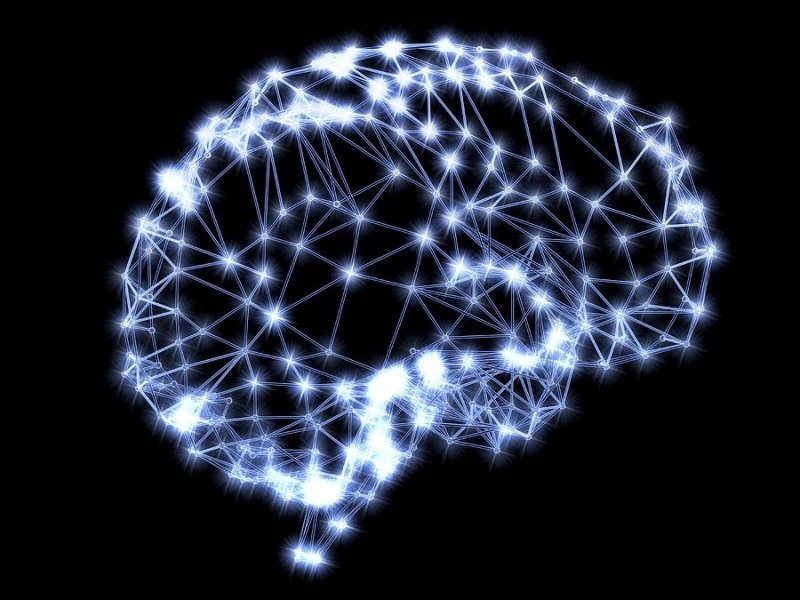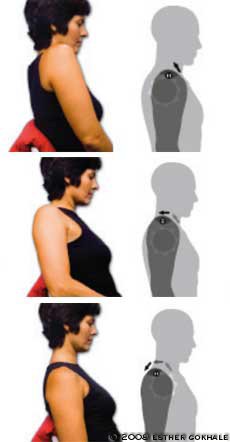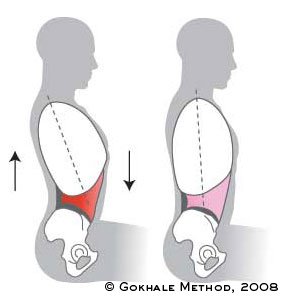Don’t Forget the Forgetting Curve! (Part 2)
When we first learn new information, we create shallow neural pathways in our brain that can quickly disappear. To retain information for the long-term requires reuse. Beyond the learning techniques referred to in Don’t Forget The Forgetting Curve (Part 1) (mnemonic devices, association, and multi-channel learning), re-engagement with the material is crucial in deepening the related neural pathways. Some aspects of re-engagement that play a big role in mitigating the effects of the forgetting curve are:
Repetition
Recall
The Halo Effect

Repetition is one form of engagement that is built into the Gokhale Method Foundations Course. Each technique is taught repeatedly in the course, and in multiple contexts. The most-repeated techniques in the course are:
Stretchsitting: we begin the course with this technique, repeat it whenever we prepare to watch slides, and use it to do our check-ins at the beginning of each lesson.
Shoulder roll: the simplest and easiest of our techniques, it is a part of stretchsitting, stacksitting, tallstanding, and glidewalking.

The shoulder roll is repeated throughout the Gokhale Method Foundations course
Butt-squeeze walking: Students learn this in Lesson 1, and return to it adding additional features in Lessons 3, 5, and 6.
Breathing into the back: This is a subtle but key concept that students meet in Lessons 2, 3, 4, 5, and 6. In spite of the emphasis and importance placed on this technique, it seems to get forgotten easily.
Repetition is crucial for kinetic experiences, as it establishes muscle memory and gets you comfortable with new movements or body positions. It builds physical patterns as well as mental ones (think about how an annoying pop song that plays repeatedly on the radio can get stuck in your head!)

Recall, or conscious remembering, is a type of re-engagement that is superior to repetition for certain learning experiences. Rereading your textbook after class constitutes repetition; taking a booster quiz qualifies as recall. A booster quiz might use multiple choice questions that ask you to think situationally about the subject to choose a best answer, or it might include short-answer questions that require you to think critically and apply your understanding of the learned concepts. The effectiveness of recall quizzes as booster events for memory is demonstrated in the graph below.

The graph shows the difference in the amount of material remembered between two groups, one of which took time to reread the material, and the other of which took the same amount of time to answer questions asking them to recall the material.
‘Booster events’ in the hours, days, and weeks following learning dramatically impact how much you can recall on the subject matter, and for how long. Repeat booster events give you a bigger return for each consecutive effort.

Each green line on the graph represents memory retention after a booster event. The rate of memory loss decreases with each successive event.
“If your goal is to produce long-term retention, and if your goal is to produce behavior change, then what you do after training is more important than what you do during training.” Art Kohn, Professor, Portland State Univ School of Business, on holding corporate training programs.
Now you might think that to retain all the information you learned in the Gokhale Method Foundations Course, you will have to recall every topic covered. Luckily, this isn’t the case due to something called the halo effect. The halo effect shows us that recalling just a few ideas improves retention of the whole learning experience. Seeing the nubs of a Stretchsit® cushion can help remind you to traction the back against the backrest, which will help recall a shoulder roll, more expansive breathing in the chest, and a general feeling of wellness and being in “good shape.”
In the Gokhale Method, each technique you learn connects with other techniques, body parts, feelings... For example, rib anchoring not only lengthens your lumbar spine, but sets up a natural spinal self-massage accompanying the breath, delivering an overall feeling of well-being. It may also cue you to elongate your neck, adjust your pelvis, and shape your feet whether standing, sitting, or laying down. Any of these hooks can serve up the halo effect and benefit your posture and your wellness.

The rib anchor is a key concept in primal posture. Recalling it can trigger the halo effect, bringing about length in the lumbar spine, a shift in breathing pattern, and a sense of well-being.
Towards the goal of providing our students with better booster events, the Gokhale Method Institute is building some additional services:
- An online complement to the Gokhale Method Foundations course, including mini-quizzes, a way to track progress, recaps, etc. We will call this the Posture Oasis. If you are a graduate of the course, you will be able to work and play in the Posture Oasis retroactively.
Geographically-based Chapters that will allow graduates of the Gokhale Method Foundations course to connect with each other for in-person study groups, review and online discussion.
Of course, we will continue to send you these bi-weekly newsletters and encourage you to attend Alumni Workshops and sign up for our Online University for graduates. For those who haven’t taken the Foundations Course yet, that’s a great place to start! We look forward to a society that has better posture, less pain, and great function!
Pop quiz: What posture technique(s) does the poised Burkina woman below remind you to do?

Burkina woman drying her laundry
_________________
Notes: For more information on the history of the concept of the forgetting curve, you can read more here on Wikipedia. These research articles, “Benefits of Testing Memory. Best Practices and Boundary Conditions,” and “The Power of Testing Memory,” go into more depth about the forgetting curve and how to overcome it.

Comments
So fantastic that the
So fantastic that the newsletter is addressing memory and learning retention for our students! As a teacher of the Gokhale Method, I think about this subject a lot. Thank you for articulating some of the science and techniques for boosting learning long-term, and for sharing this with our students. One of my favorite memory building techniques we use in the Foundations Course helps in remembering the "Checklist of Four" in Glidewalking. We say, "What do you want in the front leg, and correspondingly in the back leg? And what's happening downstream, and upstream?" (Answers: slightly bent front leg, and straight back leg. Downstream the back heel is on the ground, upstream the back gluteus medius is squeezed.) I'm really looking forward to the booster mini-quizzes!
Yes, it's exciting that we
Yes, it's exciting that we are building momentum for the next big challenge for our company - how do we support people after the Gokhale Method Foundations course?
Add New Comment
Login to add commment
Login